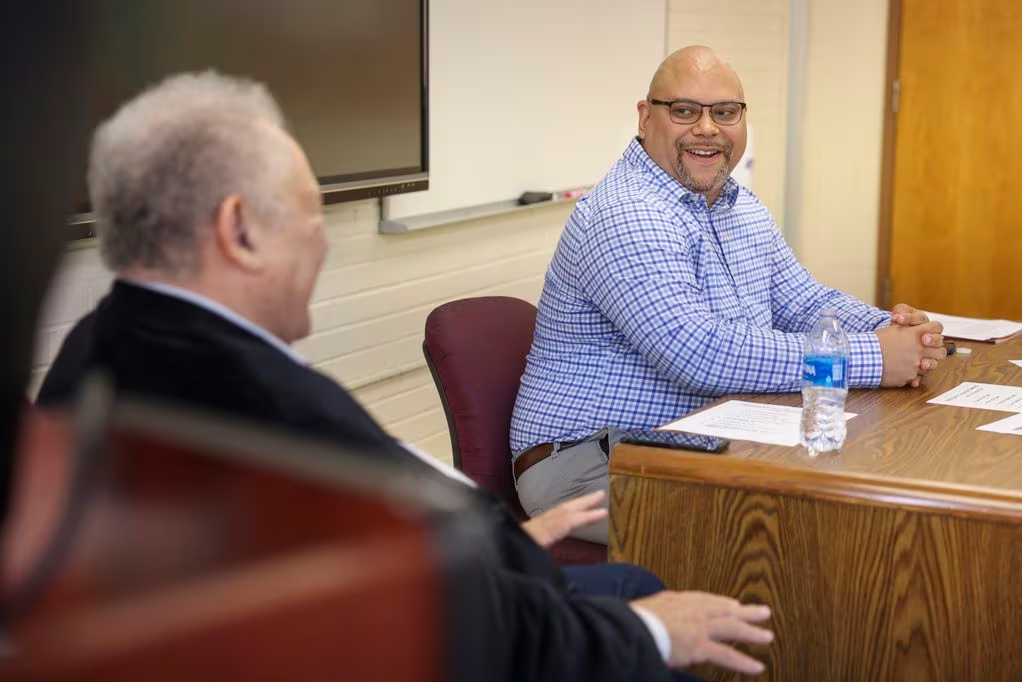Back To Blog
Steven Allwood, director of counseling services, Speaks on the importance of mental health
January 31, 2024Written by: Morehouse College
Originally published on Jan. 31, on AJC.com
When Vernon Allwood helped open Morehouse College’s counseling center 35 years ago, he had to convince students to talk about their problems.
“Morehouse men didn’t need counseling,” he said wryly during a fall lecture at the historically Black men’s college in Atlanta.

Now his son, Steven Allwood, is the director of counseling services. Though a growing number of Morehouse men are seeking support to treat depression, suicidal behaviors and other issues more severe than the homesickness and other struggles the elder Allwood typically saw, there’s a stigma that still persists.
“Oftentimes, men are more reluctant to ask for help, and so they’ll sort of let a problem fester longer before they’ll seek help for it. It’s kind of like the last resort is to come to counseling,” Steven Allwood said.
Only 22.5% of male undergraduate students received psychological or mental health services over the course of a year, according to aspring 2023 American College Health Association survey of more than 55,000 respondents nationwide. That’s compared to 39.5% of female students and 63.3% of transgender and gender-nonconforming students.
Statistics show the reluctance of some young men to seek help could be tragic. Nationally, 3.1% of male undergraduates surveyed indicated they had attempted suicide over a recent 12-month period, less than 5.6% of transgender students but more than 2.3% of women. Overall, men made up about 80% of the nation’s nearly 50,000 suicide deaths in 2022, most recently available data shows.
Campus counseling centers across Georgia — from Georgia Tech to Kennesaw State and Emory universities — see far more women using their services. However, there aren’t many mental health services designed specifically for men on Georgia’s college campuses. Some schools are trying strategies — such as peer-mentoring programs and shorter-term, goal-focused coaching — that may resonate with male students hesitant to try traditional talk therapy.
The state and federal government in recent years have recognized mental health as an important issue on college campuses and committed more money for counselors and other resources. Gov. Brian Kemp allocated $6 million last year for more access to mental health resources and additional professional development opportunities for faculty for Georgia’s colleges and universities.
Challenges, though, remain to providing care.
Read the entire article on AJC.com
Tag(s):
Centers, Institutes and Programs